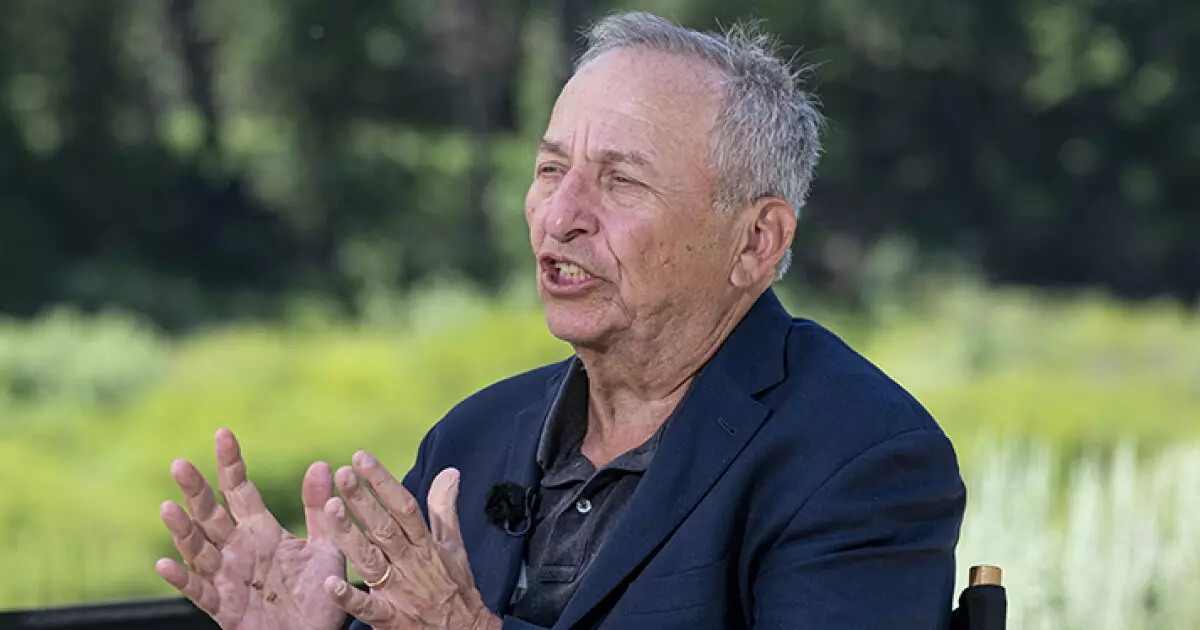5 Shocking Insights on Trump’s Future Fed Choice

As the U.S. economy navigates a precarious landscape punctuated by fluctuating market sentiments and political machinations, the debate surrounding the Federal Reserve’s leadership has become increasingly critical. Former Treasury Secretary Lawrence Summers, noted for his economic acumen, has weighed in on what we might anticipate in the coming months regarding Donald Trump’s anticipated selection for the next Fed chair. Despite Trump’s vocal discontent with current Chair Jerome Powell’s decisions—especially concerning interest rates—Summers believes that the president will ultimately opt for a candidate who reflects the interests of centrist economic policy. This assertion, while seemingly optimistic, raises questions about the motivations driving such decisions and their potential ramifications on our nation’s financial stability.
Trump: The Unlikely Ally of Mainstream Economics?
The notion that Trump, known for his bombastic and often contradictory rhetoric, would appoint a “reasonable person” to the Fed is as entertaining as it is distressing. Summers suggests there’s an inherent need for stability amid market turbulence, implying that even Trump understands the peril of destabilizing the economy further, which might encourage him to select a candidate that appeals to both Republicans and Democrats. Herein lies the irony: while Trump’s critique of Powell mirrors a desperate attempt to distance himself from possible economic fallout, a mainstream appointment could paradoxically consolidate his profile as a president interested in sound economic governance. One can only wonder if this would be a genuine shift in Trump’s approach or merely a strategic move in preparation for the 2024 elections.
Setting the Scene for Blame
Summers also posits that Trump’s incessant calls for reduced interest rates correlate less with genuine economic strategy and more with a tactical maneuver designed to shift blame for potential downturns away from his administration. This revelation reveals a deeper, unsettling truth about modern political behavior: accountability has become an optional facade. Instead of fostering an environment conducive to responsible governance, Trump’s strategy appears to be laying the groundwork for scapegoating. Should a recession materialize, the narrative will be conveniently crafted to blame Powell and the Fed rather than the administration’s policies that precipitated financial instability. This scenario highlights a distressing trend—the prioritization of self-preservation over the common good.
The Impending Economic Reckoning
As we look ahead, the implications of Trump’s decisions extend beyond political posturing. The Federal Reserve’s recent forecasts point to a complex set of challenges. While energy costs may see a dip and productivity enhancements via artificial intelligence might offer glimmers of hope, the overarching sentiment remains one of caution. As Summers points out, the Fed’s simultaneous adjustments to inflation and unemployment figures reflect an impending supply shock predominantly driven by tariffs. Once again, the entanglement of economic policy and political maneuvering leads to a precarious situation—one that could have catastrophic consequences for American families and businesses alike.
The Echoes of Tariff Wars
In a broader analysis of Trump’s economic strategies, it’s clear that tariffs have engendered more chaos than benefit. When tapping into the historical context of global economic relations, one can discern that protectionist measures seldom deliver the promised relief. Instead, they perpetuate cycles of uncertainty that erode consumer confidence and slow growth. The Fed’s recent concerns underscore the adverse effects—higher prices, reduced purchasing power, and a populace grappling with despair. Summers’ observations emphasize this point, offering a stark reminder that while the Trump administration does attempt to shape a narrative of economic resurgence, the reality is often dissonant with public experience.
A Call for Pragmatism
In light of these developments, it’s imperative that we approach future Fed appointments and economic policies with a critical eye, demanding transparency and accountability from our leaders. The realm of central banking should not become another stage for political theater; rather, it needs to focus on fostering sustainable economic growth that benefits all individuals, not just the elite. The challenge ahead lies in navigating the thin line between political ambition and sound economic governance, especially with a leader whose whims can often overshadow wisdom. As we anticipate the unveiling of Trump’s Fed choice, let’s hope for a candidate who prioritizes responsibility over rhetoric, and one that can steer the economy away from the precipice of instability.





